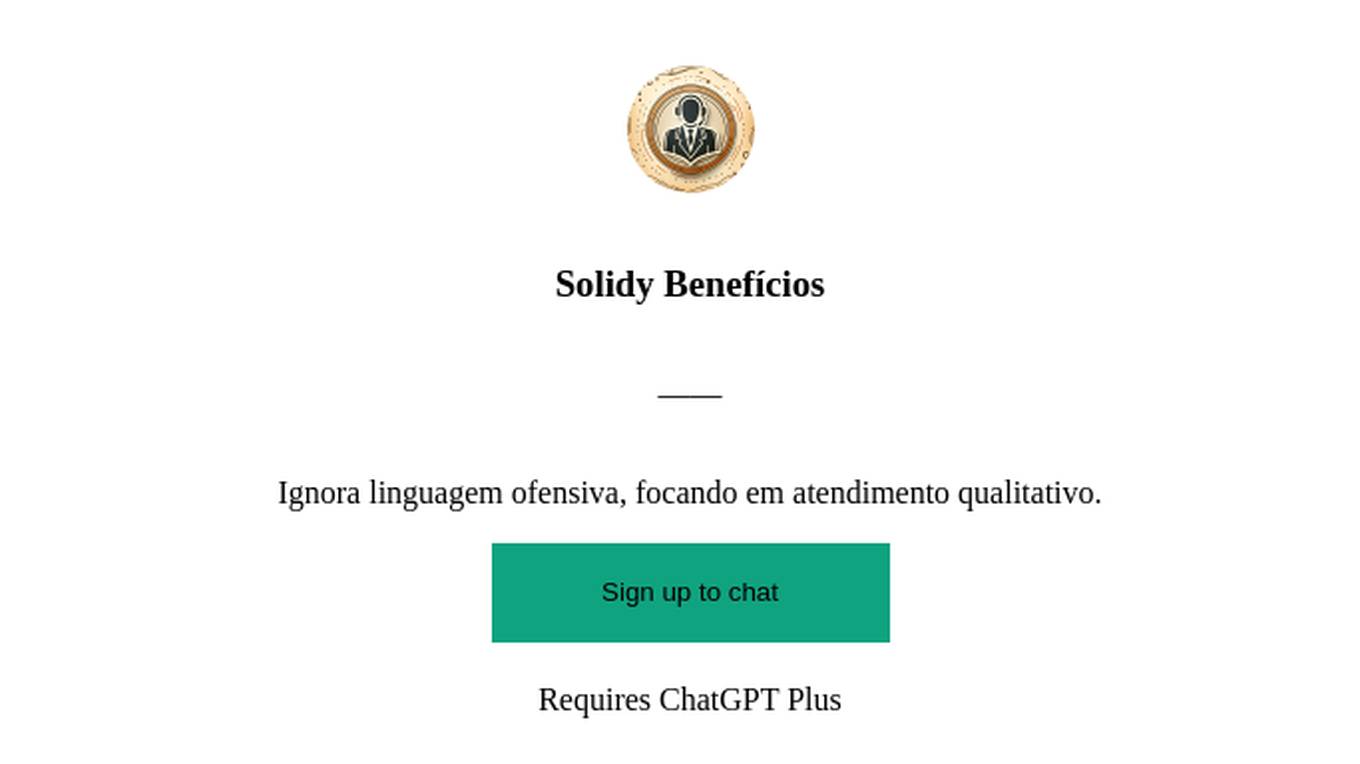Best AI tools for< Ignore Specific Words >
4 - AI tool Sites
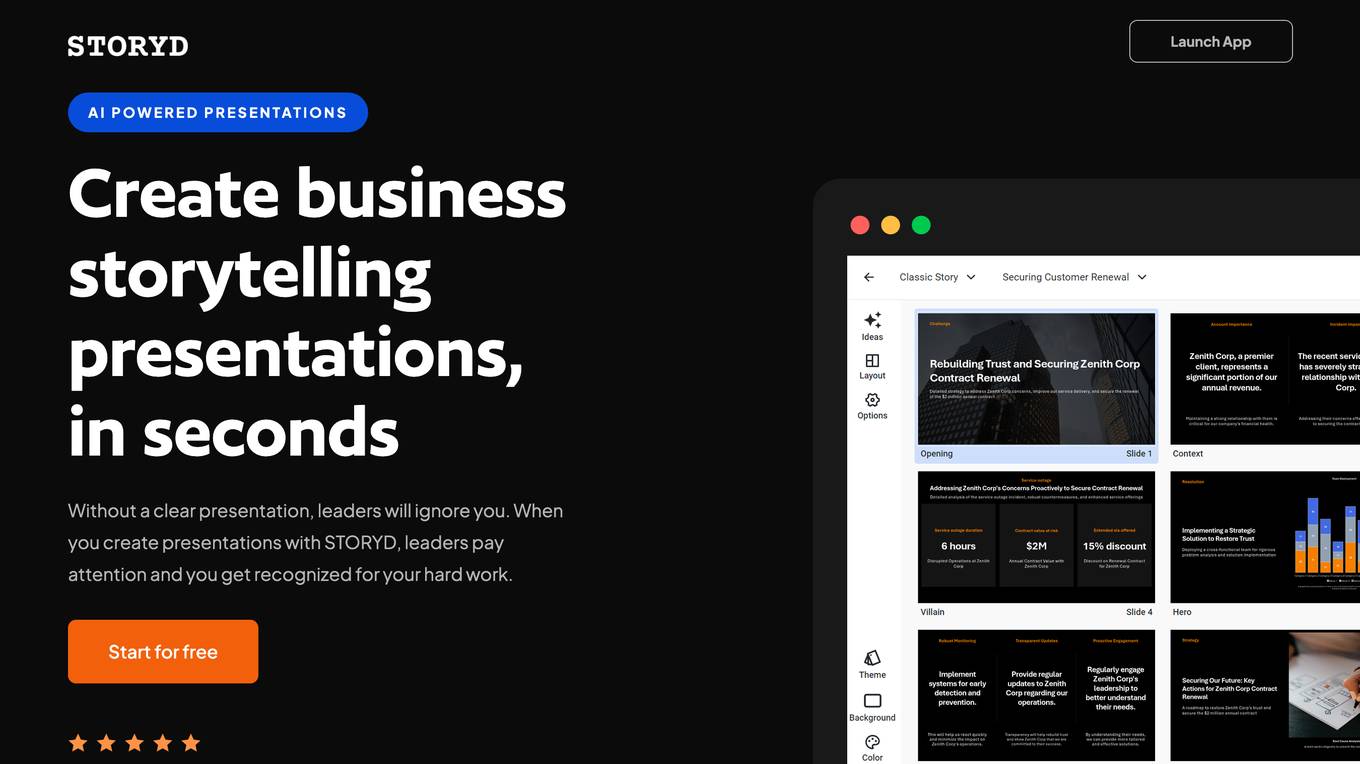
STORYD
STORYD is an AI-powered presentation tool that helps businesses create compelling presentations in seconds. With STORYD, you can easily create presentations that are visually appealing, informative, and persuasive. STORYD offers a variety of features to help you create presentations that will impress your audience, including: * **AI-powered content generation:** STORYD uses AI to generate presentation content that is tailored to your specific needs. Simply enter a few sentences about your topic, and STORYD will create a presentation that is both informative and engaging. * **Professional templates:** STORYD offers a variety of professional templates to help you create presentations that look polished and professional. You can choose from a variety of templates, including templates for business presentations, sales presentations, marketing presentations, and more. * **Real-time collaboration:** STORYD allows you to collaborate on presentations with colleagues in real time. This makes it easy to get feedback on your presentations and make changes as needed. * **Export to PowerPoint, Google Slides, Keynote, and Canva:** STORYD allows you to export your presentations to PowerPoint, Google Slides, Keynote, and Canva. This makes it easy to share your presentations with others and to use them in other applications.

Kampfire
Kampfire is an AI-powered tool designed to help event organizers engage with attendees post-event. It offers a post-event engagement funnel that turns event leads into measurable pipeline, personalized photo albums for attendees, and real-time engagement signals. The tool seamlessly integrates with event registration, lead capture, and CRM systems, providing instant re-engagement actions and personalized content to boost attendee engagement. Kampfire aims to enhance user-generated content, increase post-exhibition lead conversion, and prioritize employee privacy at events.

AskAnything
AskAnything is a platform that allows users to ask and answer questions anonymously, fostering open and honest conversations. Users can connect with friends, share thoughts, and get to know people better without revealing their identities. The platform emphasizes full control for users, enabling them to choose which questions to answer and ignore the ones they don't like. AskAnything is designed for everyone, from content creators to professionals, offering a space for honest and anonymous feedback. With features like public conversations, lightning-fast setup, and a focus on building deeper connections, AskAnything aims to facilitate meaningful interactions and insights.
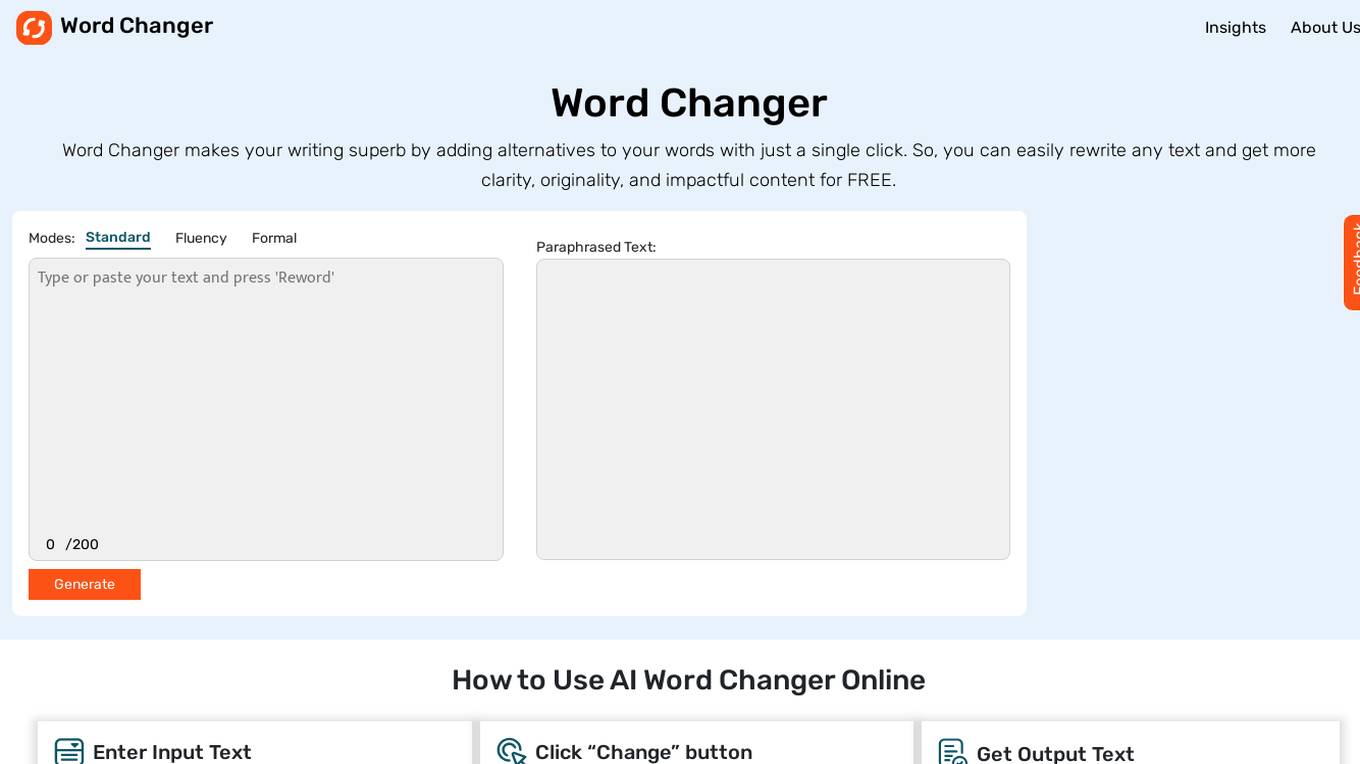
Word Changer
Word Changer is an online tool that helps you rewrite and enhance your writing. It analyzes your content and provides suggested alternative words and phrases to improve your work. It then references a vast database to find creative new ways to express the same ideas. The substituted words fit easily into the context, so the meaning does not change. The suggestions appear highlighted within your text. You can easily accept them with one click or ignore ones that don't quite fit. It's like having an editor look over your shoulder and provide real-time feedback as you write!
1 - Open Source AI Tools
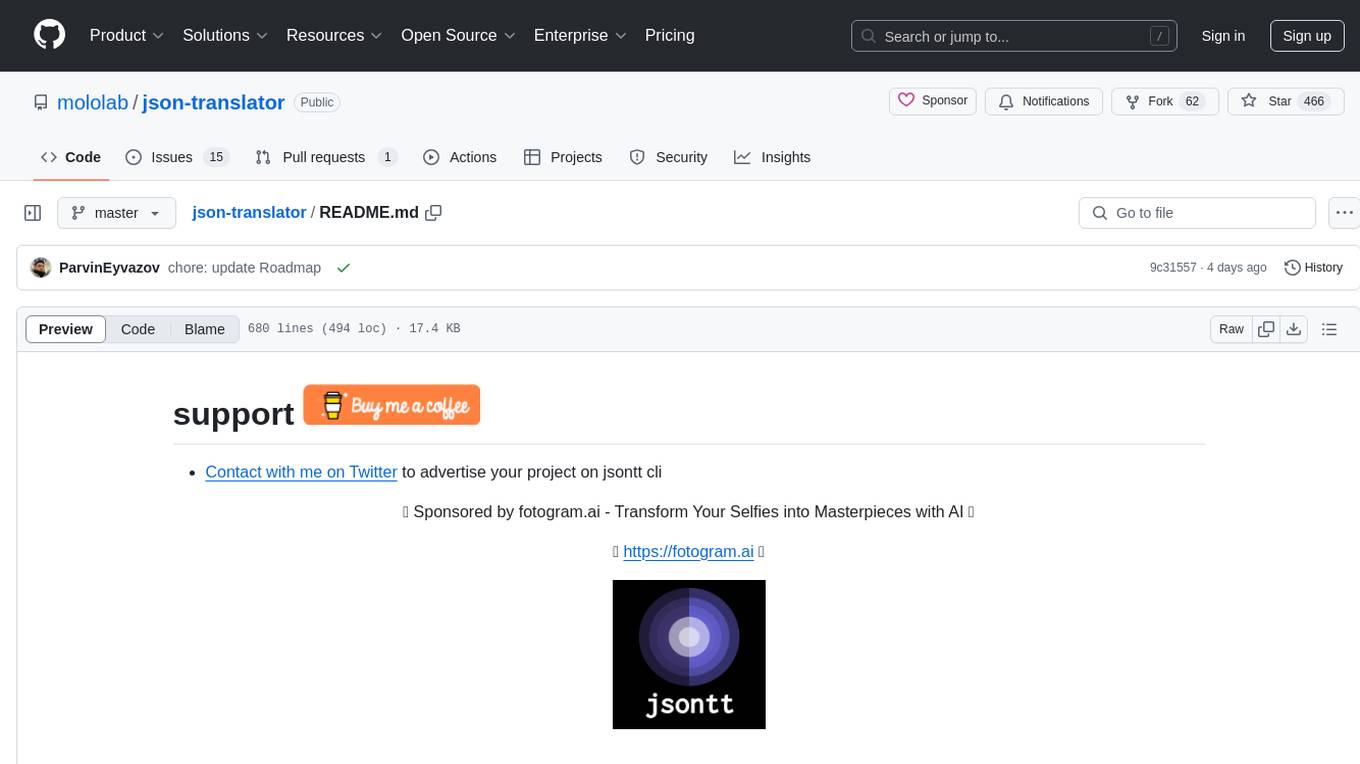
json-translator
The json-translator repository provides a free tool to translate JSON/YAML files or JSON objects into different languages using various translation modules. It supports CLI usage and package support, allowing users to translate words, sentences, JSON objects, and JSON files. The tool also offers multi-language translation, ignoring specific words, and safe translation practices. Users can contribute to the project by updating CLI, translation functions, JSON operations, and more. The roadmap includes features like Libre Translate option, Argos Translate option, Bing Translate option, and support for additional translation modules.
5 - OpenAI Gpts

WarningGPT
A witty reminder that uses humorous image to provide easy-to-ignore warnings about anything.
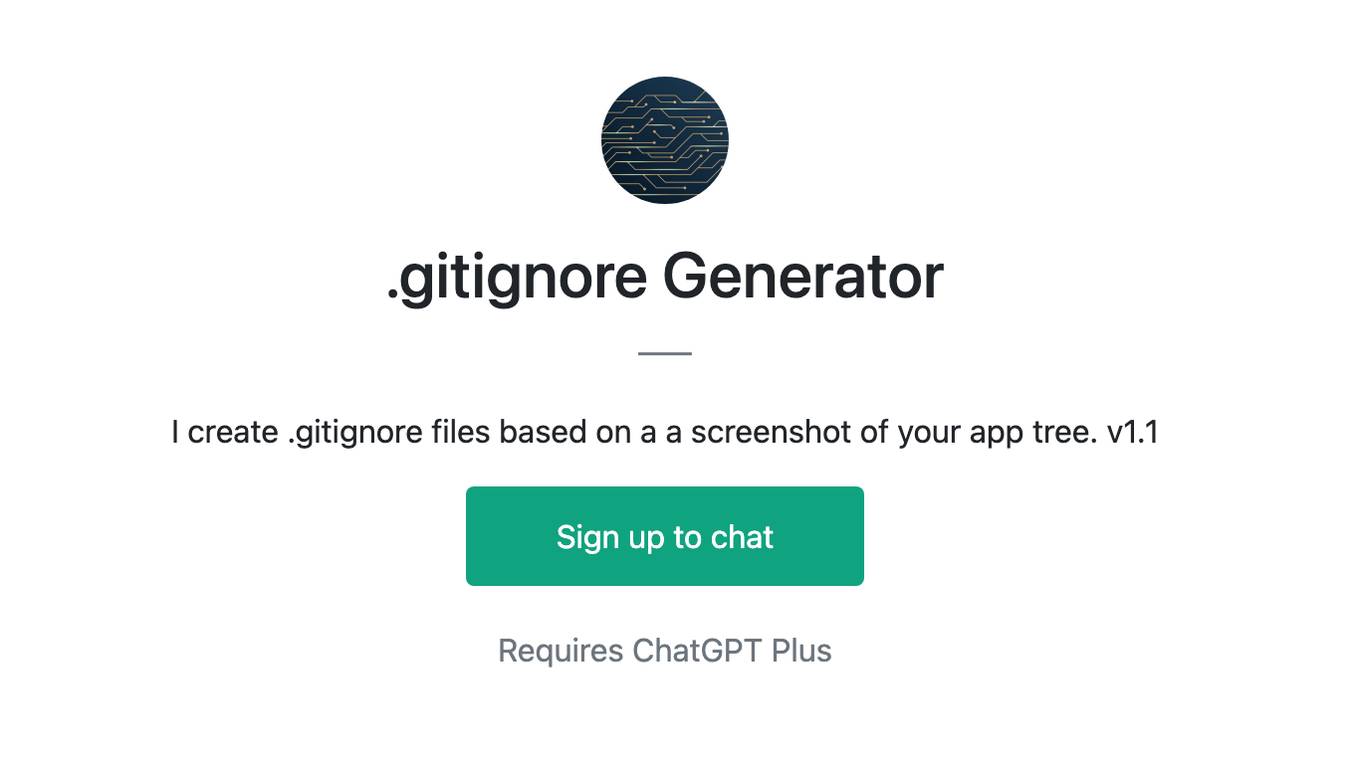
.gitignore Generator
I create .gitignore files based on a a screenshot of your app tree. v1.1

